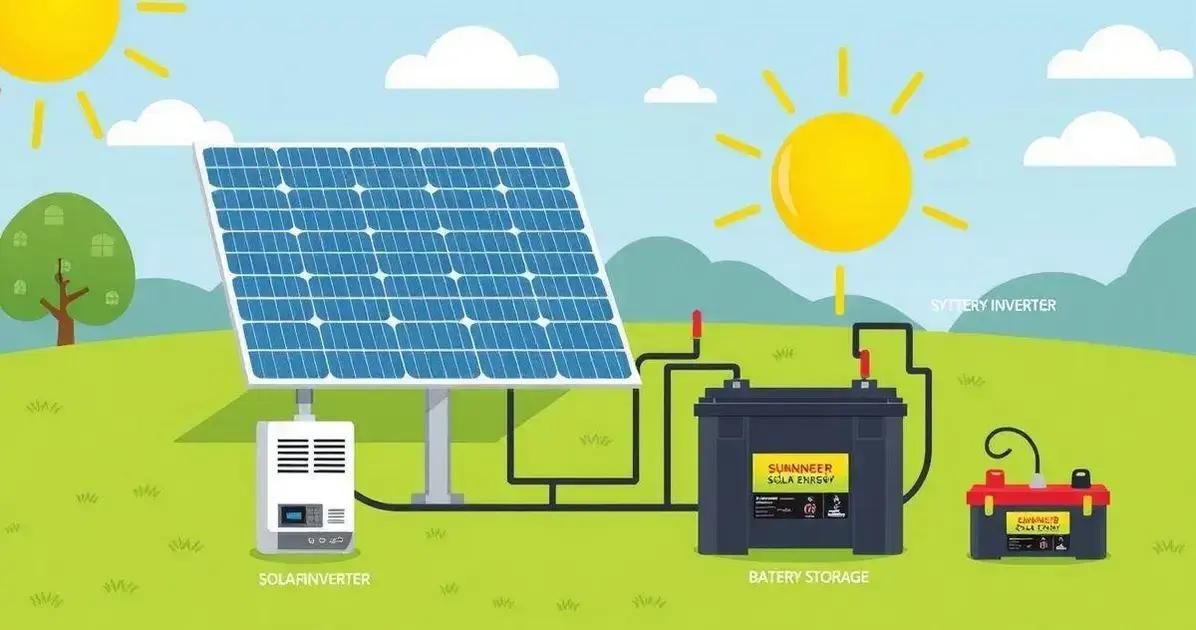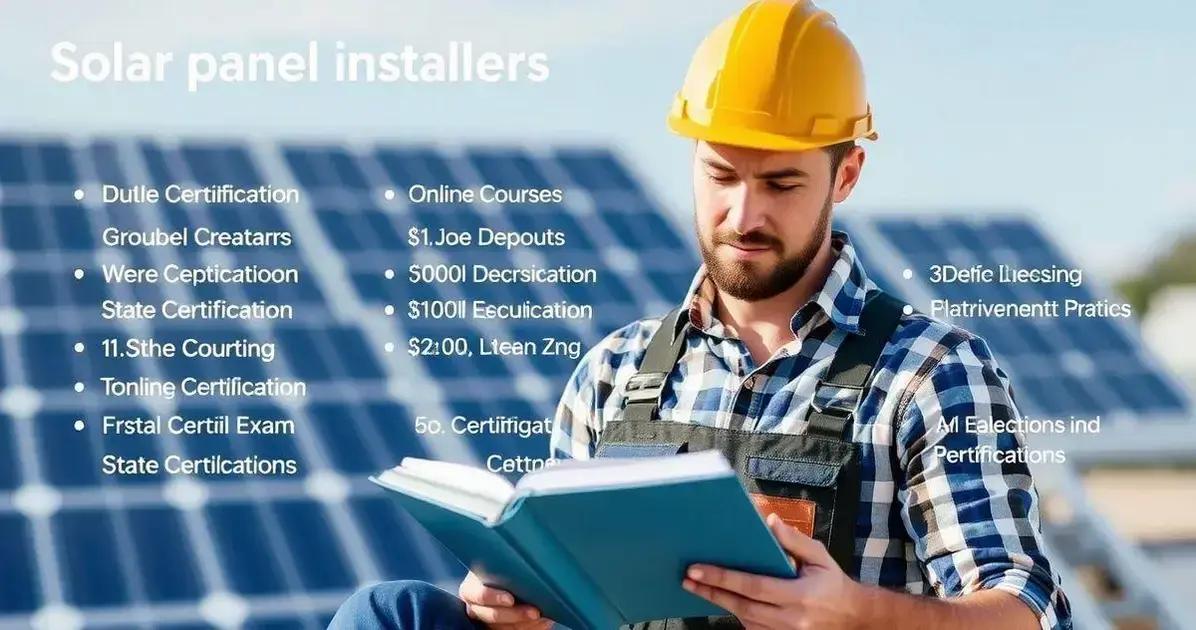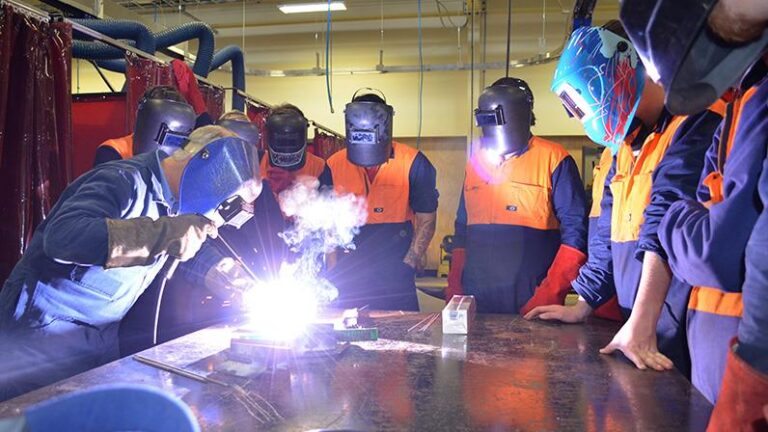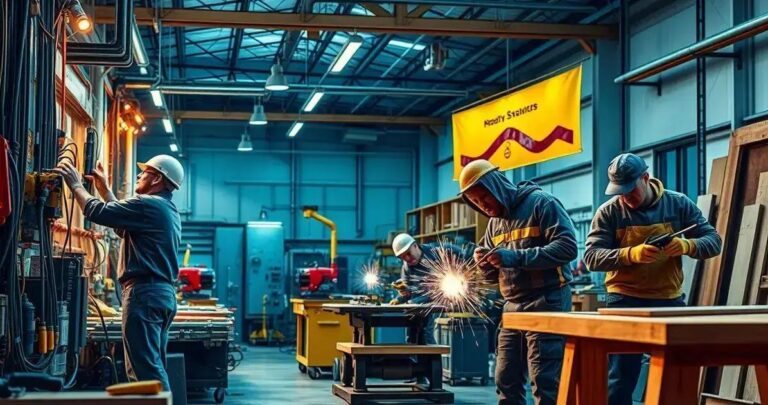Solar Panel Installer Course: Unlock Your Future in Green Energy
Anúncios
**Unlock your future** with a comprehensive Solar Panel Installer Course. As the demand for green energy solutions grows, becoming a certified solar panel installer presents an exciting career opportunity. This course covers everything from understanding solar energy systems to mastering installation techniques, ensuring you’re fully equipped to enter this promising field. Discover the essential steps, from certification requirements to safety protocols, and learn how you can advance your career in the ever-expanding green energy industry.
Why Choose a Solar Panel Installer Course?
Choosing a Solar Panel Installer Course can be a pivotal step toward a rewarding career in green energy. As global demand for renewable energy solutions rises, skilled professionals are needed to meet this demand. By enrolling in such a course, you’ll gain in-depth knowledge about solar technology and its practical applications.
Career Opportunities in Growing Industries
The solar industry is rapidly expanding, offering numerous job opportunities. Completing a solar panel installer course can open doors to positions in installation, maintenance, and beyond. Many companies are actively seeking trained individuals to join their teams, making this an excellent time to enter the field.
Hands-On Learning and Practical Skills
These courses typically offer hands-on training, allowing students to work with actual solar equipment. This practical experience is invaluable, providing a real-world understanding of how solar panels are installed and maintained.
The curriculum often includes electrical system design, panel placement, and energy efficiency strategies. This well-rounded education ensures students can confidently tackle projects upon course completion.
Contributing to Environmental Sustainability
By becoming a solar panel installer, you’re directly contributing to environmental sustainability. Installing solar panels helps reduce carbon footprints and encourages the use of clean, renewable energy.
Beyond personal career growth, you’ll be part of a global movement toward sustainable living, making your work fulfilling and impactful.
Understanding the Basics of Solar Energy Systems

Learning the basics of solar energy systems is essential for anyone entering the solar industry. These systems transform sunlight into electricity using photovoltaic (PV) cells. Each PV cell converts sunlight into direct current (DC) electricity, which is then converted to alternating current (AC) for home and business use.
Components of a Solar Energy System
A standard solar energy system consists of several key components, including solar panels, inverters, and mounting equipment. The solar panels collect sunlight, while the inverter changes DC electricity into AC electricity. Mounting systems ensure panels are securely installed, optimizing sunlight exposure.
Understanding Solar Panel Efficiency
Solar panel efficiency is a critical aspect of solar energy. It refers to the percentage of sunlight that is converted into usable electricity. Different panels offer varying efficiency rates, and choosing the right one depends on several factors, including geographic location and energy needs.
System efficiency is also influenced by panel angle and orientation. Proper placement can significantly boost energy output, making it important to understand local sun paths and potential shading.
Energy Storage Solutions and Benefits
Energy storage systems allow solar users to store excess energy generated during the day for use at night or during power outages. The most common storage solution is a battery system, which can enhance energy independence and reliability.
By understanding these basics, you’ll be well-prepared to explore solar panel installation and its benefits, as well as the impact on energy bills and environmental sustainability.
Step-by-Step Guide to Installation Techniques
Installing solar panels requires a precise approach, ensuring safety and efficiency. A step-by-step guide helps you achieve this. Begin by assessing the roof for structural integrity and optimal sunlight exposure. Proper site evaluation is crucial to maximizing energy capture.
Mounting the Panels Securely
Secure mounting techniques are essential. Attach the racking system to the roof, considering tilt and angle for optimal sunlight. Ensure mounts align with rafters for stability. This foundation supports the weight of the panels and withstands weather.
Electrical Components Connection
Connect panels with inverters, converting DC to AC electricity. Run conduit to protect wiring channels. Proper wiring routes prevent short circuits, enhancing safety and performance. Consult an electrical engineer if necessary for complex setups.
System Testing and Validation
Once installed, test the system to confirm power generation. Use a multimeter to check voltage levels and connections. Verification ensures every component works correctly, providing reliable energy output and system longevity.
System setup combines mechanical and electrical skills, making hands-on training critical. This detailed guide outlines fundamental techniques, equipping you for successful, safe installations in the ever-growing solar energy field.
Certification and Licensing Requirements

Understanding certification and licensing is vital for a career in solar panel installation. Requirements vary by location but generally include completing a training program and passing a certification exam. One widely recognized certification is offered by the North American Board of Certified Energy Practitioners (NABCEP).
Benefits of Certification
Getting certified enhances your credibility and employs marketability. Employers often prefer certified installers, as this demonstrates a commitment to quality and expertise. Certification can also lead to higher pay and better job opportunities in the expanding solar energy sector.
State and Local Licensing
Licensing requirements differ across states and municipalities. Some areas demand a specific solar license, while others may incorporate solar installation into a general electrician’s license. Checking with local authorities ensures compliance with all regulations.
Attending a reputable solar installation course prepares you for these exams, teaching both theoretical knowledge and practical skills. Continuous education is also key, as technology and local codes frequently evolve. Staying updated keeps your skills relevant in this dynamic industry.
Safety Protocols for Solar Panel Installers
Adhering to safety protocols is crucial in solar panel installation to protect both the installer and the system. Working at heights poses significant risks, and using proper safety equipment is essential. Harnesses, helmets, and non-slip boots help ensure installer safety during rooftop installations.
Electrical Safety Measures
Handling high-voltage equipment necessitates stringent electrical safety precautions. Always de-energize systems before starting work. Use insulated tools and wear rubber gloves to prevent electrical shocks. Being aware of lockout and tagout procedures is essential for all electrical systems.
Weather Considerations
Weather plays a significant role in safety management. Wet surfaces can become slippery, increasing fall risk. Additionally, extreme weather conditions, such as high winds or lightning, require delaying installation activities until conditions improve.
Thorough risk assessments before beginning work help identify potential hazards. Regular safety training and drills reinforce awareness and preparation. Understanding these protocols ensures a safe and successful installation process, contributing to a safer work environment.
Advancing Your Career in Solar Energy

Building a successful career in solar energy involves continuous learning and skill enhancement. Start by gaining hands-on experience through fieldwork and practical training. Engage in projects that expand your understanding of different systems and technologies.
Networking and Professional Associations
Joining professional organizations can significantly boost your career prospects. They offer networking opportunities and resources like industry conferences, workshops, and seminars. Meeting industry leaders and peers can open doors to new job opportunities and collaborations.
Continuing Education and Specialization
Pursuing further education enhances your expertise. Specializing in areas such as solar design, system optimization, or sales could increase your employability. Online courses and certifications help keep your skills relevant in this rapidly evolving field.
Stay updated on industry trends through trade publications and online forums. Understanding emerging technologies like smart grids or solar storage solutions can make you a more valuable asset to future employers.
Unlocking Your Future in Solar Energy
Embracing a career in solar energy opens the door to a sustainable and promising future. Completing a Solar Panel Installer Course equips you with essential knowledge and skills for this dynamic industry.
From understanding fundamental principles to mastering installation techniques, each step forward enhances your expertise. Certification validates your skills, making you a credible professional in a competitive field.
Safety protocols and continual education keep your career path secure and expansive, allowing you to grow as technologies evolve. Investing in your education and networking within the industry ensures you remain at the forefront of innovations.
Seize the opportunities provided by the green energy revolution, and you’ll not only build a rewarding career but also contribute to a more sustainable world.
FAQ – Frequently Asked Questions About Solar Energy and Installation
What qualifications do I need to become a solar panel installer?
To become a solar panel installer, you should complete a training program, obtain certification from recognized entities like NABCEP, and comply with state and local licensing requirements.
Why is certification important in the solar industry?
Certification enhances your credibility and employability, demonstrating to employers your commitment to quality, skill, and safety in solar panel installation.
What are the main safety protocols in solar panel installation?
Important safety protocols include the use of personal protective equipment, adherence to electrical safety measures, and awareness of weather conditions that could impact installation safety.
How can continuing education benefit my solar energy career?
Continuing education helps keep your skills relevant, allowing you to specialize in new technologies such as solar design and storage solutions, thus enhancing career growth opportunities.
What are the key components of a solar energy system?
A solar energy system consists of solar panels, inverters, and mounting equipment, each playing a vital role in converting sunlight into usable electrical energy.
How can networking help advance my career in solar energy?
Networking through professional associations and industry events offers opportunities to meet potential employers, collaborators, and to stay informed about industry trends and opportunities.






